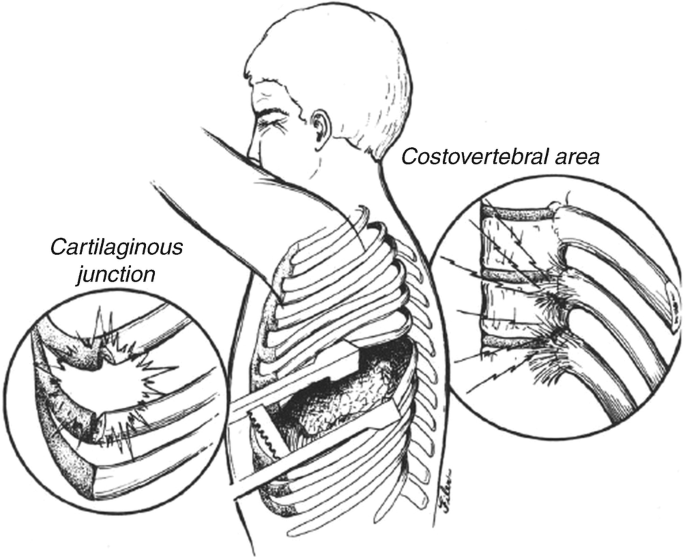Dr. Shilpa Gandhi | Leading Consultant Minimally Invasive Thoracic Surgeon In Nagpur
Meet Our Doctor
Dr. Shilpa Gandhi
MBBS, DNB General Surgery DNB Thoracic Surgery
Dr. Shilpa Gandhi is a trusted and experienced healthcare professional known for her compassionate care and expertise. Committed to delivering personalized treatments and improving patient well-being.


Pain Management After Thoracic Surgery
Pain management after thoracic surgery is a critical component of the healing process. Whether you’ve undergone lung surgery, esophageal surgery, or another thoracic procedure, effective pain control helps improve breathing, mobility, and overall recovery. In this guide, we’ll explore the best practices, medications, and techniques for managing pain after thoracic surgery.
Pain management after thoracic surgery is essential to ensure a smooth and effective recovery. Thoracic surgery involves procedures on the chest, lungs, or esophagus, which can leave patients with significant discomfort. Managing this pain is critical to improving breathing, mobility, and overall quality of life during the healing process. This guide provides an in-depth look at the best pain management strategies after thoracic surgery.
Why Is Pain Management Important After Thoracic Surgery?
Thoracic surgery often involves large incisions or minimally invasive techniques that can still cause discomfort due to the sensitive chest area and proximity to nerves and muscles. Proper pain management is essential to:
- Enhance lung function by enabling deep breathing and reducing the risk of pneumonia.
- Improve mobility, which prevents complications like blood clots.
- Promote faster recovery by reducing stress and supporting restful sleep.
Top Pain Management Techniques After Thoracic Surgery
1. Medications for Pain Relief
Effective medications are often the first line of treatment to reduce post-surgical discomfort. These include:
- Opioids: Prescribed for the first few days after surgery to manage severe pain. Common options include morphine, oxycodone, or hydrocodone. These should be used cautiously under medical supervision.
- NSAIDs: Non-steroidal anti-inflammatory drugs like ibuprofen and ketorolac reduce swelling and relieve mild to moderate pain.
- Acetaminophen: Used alone or in combination with other medications for enhanced pain relief.
- Nerve Pain Medications: Drugs like gabapentin or pregabalin may help manage nerve-related pain, which is common in thoracic surgeries.
2. Epidural or Nerve Block
For more targeted pain control:
- Thoracic Epidural Analgesia (TEA): Provides continuous pain relief directly to the surgical area by delivering medication near the spinal cord.
- Intercostal Nerve Blocks: Block pain signals from the nerves near the rib cage.
3. Breathing Exercises
Breathing deeply can feel painful after thoracic surgery, but it is crucial to prevent lung complications. Support your recovery with:
- Pillow Support: Place a pillow against your chest when coughing or sneezing to reduce pain.
- Incentive Spirometry: A device that helps you practice deep breathing to expand your lungs.
Why Consult a Thoracic Surgery Specialist?
You should consult a thoracic surgery specialist if you’re experiencing symptoms such as:
- Persistent chest pain or discomfort
- Difficulty breathing or shortness of breath
- Chronic cough or coughing up blood
- Trouble swallowing or unexplained weight loss
- Abnormal chest X-ray or CT scan results
Benefits of Choosing a Thoracic Surgery Specialist
A thoracic surgery specialist brings advanced knowledge, skill, and technology to the treatment of chest conditions. Benefits of working with these specialists include:
- Comprehensive Care: From diagnosis to post-surgical recovery, they provide personalized treatment.
- Minimally Invasive Options: Faster recovery, less pain, and smaller scars with techniques like VATS and robotic surgery.
- Multidisciplinary Approach: Collaboration with pulmonologists, oncologists, and other specialists for the best outcomes.
Conditions Treated by a Thoracic Surgery Specialist
A thoracic surgery specialist treats various chest and lung conditions, including:
- Lung Cancer
- Esophageal Cancer
- Pleural Diseases
- Collapsed Lung (Pneumothorax)
- Chest Trauma
- Diaphragmatic Hernias
What Is a Thoracic Surgery Specialist?
A Thoracic Surgery Specialist is a medical professional who focuses on surgical procedures involving the organs and tissues inside the thoracic cavity. These include the lungs, esophagus, trachea, diaphragm, or chest wall. These specialists often collaborate with pulmonologists, oncologists, and other healthcare providers to ensure comprehensive care for their patients.
Why Choose a Thoracic Surgery Specialist?
Thoracic surgery involves treating life-altering and potentially life-threatening conditions. A Thoracic Surgery Specialist provides:
- Expert Diagnosis: Accurate assessment of thoracic conditions using advanced imaging and diagnostic tools.
- Cutting-Edge Treatments: Minimally invasive techniques like video-assisted thoracoscopic surgery (VATS) and robotic surgery for better outcomes.
- Specialized Care: Expertise in handling complex cases, including lung cancer, esophageal cancer, and chest trauma.
Benefits of Minimally Invasive Thoracic Surgery
Modern thoracic surgery techniques, such as VATS and robotic-assisted surgery, have revolutionized patient care. Benefits include:
- Reduced Pain and Scarring: Smaller incisions lead to less post-operative discomfort.
- Shorter Recovery Time: Patients can return to daily activities more quickly.
- Lower Risk of Complications: Minimally invasive techniques reduce the chance of infection and other risks.



